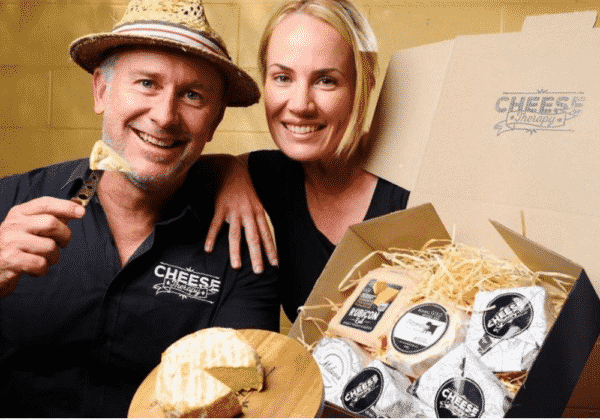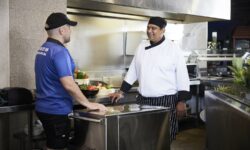Pivoting: The Lasting Legacies from Lockdown
The pandemic forced many businesses to work differently, with some measures proving incredibly successful… We look at the lasting legacies adopted by three businesses in Australia.
For businesses grand and small, the pandemic forced owners to adapt their systems and ways of working at record speed.
And while some of those measures were temporary and worked well during lockdown conditions, others proved incredibly successful and have become lasting legacies rather than just short-term fixes.
For Victorian-based beef farmer Lizette Snaith, one of the best things to come out of the havoc created by the pandemic is that it has given her back weekends with her husband Allen.
Following 16 years of travelling to weekend farmers’ markets around her local region near Clonbinane, Snaith has cut back on the markets without cutting back on profits, after setting up an online shop.
For the Snaiths, owners of Warialda Belted Galloways – which specialises in supplying 100 per cent grass-fed, dry-aged beef to restaurants and farmers’ markets – their first move to combat the impact of COVID-19 was activating a dormant online platform they had set up a few years ago but never really embraced.
“We’d been talking about selling online for a while but hadn’t made the move, and then suddenly, within 10 days, we got ourselves set up through the Open Food Network platform,” Lizette recalls. “It was really trying to transfer what we offered at a farmers’ market face-to-face to online. We did our own deliveries and people had a choice of picking it up at a designated point in Melbourne or we’d leave it in an Esky on the front step.”
As restaurants closed and social distancing came into effect at the markets, the Snaiths, like many other businesses, saw a rapid drop in sales.
“We reduced how much we processed and our wholesale business pretty much stopped – I think we were probably down 50 per cent in sales,” says Lizette. “But it has evened out now. We’ve got more personal time, we are still doing some markets, but we now have another avenue through the online shop, and the wholesale market is coming back.”
The switch to online is permanent – and Snaith says the benefits go well beyond the balance sheet. “One of the best things to come out of this is that before we were doing eight markets a month and we are now doing four and that means we have two weekends off a month, which is amazing.”
The Snaiths’ move online echoes a trend across the country, says Paul Zahra, CEO of the Australian Retailers Association. He points to data from Australia Post, which indicates that 82 per cent of all households shopped online in 2020.
“The pandemic highlighted just how important it is for retailers to have an omnichannel strategy so they can cater for customers whichever way they interact with their business – through a mobile phone, computer or in-store,” Zahra says.
“Consumers are now expecting retailers to ‘meet them where they are’ – and the businesses that have made the investments in digital to meet the changing needs of customers are on the right path to success.”
The perfect pivot
For online cheese seller Cheese Therapy, an idea born during the devastating bushfires on the east coast of Australia in 2019-20 came into its own again during the pandemic, resulting in a boom for small cheesemakers.
When Milawa Cheese came to Cheese Therapy owner Sam Penny with a cry for help to shift two tonnes of cheese that had been made in preparation for cellar-door sales over the Christmas period in 2019, he was quick to respond. The result was a special Milawa Cheese Box and customers already signed up for regular cheese deliveries jumped at the chance to support the business.
“To be honest, I thought we’d only sell 50 boxes,” he says. “We ended up selling 2,000 and it was purely because people want to support Australians in a time of need.”
Just months later, as the effects of the pandemic started manifesting, other cheesemakers started contacting Penny for help.
He says: “With those first lockdowns, they all had cheese they’d been making for weeks, in some cases months, and they didn’t know what they were going to do with them. And so we created something called Therapy Boxes, which include four different cheeses from four cheesemakers every month.
“It’s great because we get to spread the love and we’ve basically been able to keep the doors of 17 small cheesemakers open – on average their sales increased 30 per cent over 2019 figures.”

Cheese Therapy
Home sweet home
Organic grocer Rhubarb Rhubarb, based at the Preston Market in Melbourne, also swiftly moved online as the pandemic caused lengthy lockdowns.
“We had recently moved into our new space at the market and things were going well,” says co-owner Sue Sheehan. “And then the lockdown came and we had to quickly adjust. We got our online shop up and running and we started home deliveries. That’s died off a bit now but we are set up to be able to deliver to customers, many of whom are immuno- compromised or with a physical disability.”
Rhubarb Rhubarb’s online presence not only catered to customer needs, it allowed the business to increase sales. The layout of the market shop met social distancing measures, and prompted Sheehan to fast-track plans to open for more hours each week.
“A big part of our adjustment was opening seven days a week so that we could give people who didn’t want to shop at busy times a quiet space,” she says. “People really appreciated that we adjusted to the situation and gave them what they wanted. Similarly, customers who didn’t want to come into the shop could order from home.
“Even though it felt quieter, people’s spends were larger. And that meant takings were up generally, even though it felt like there were less customers coming through.”
Most Read
You may also like
-
Stay up to date with the latest news, industry insights and Fine Food Australia updates.
- Subscribe









